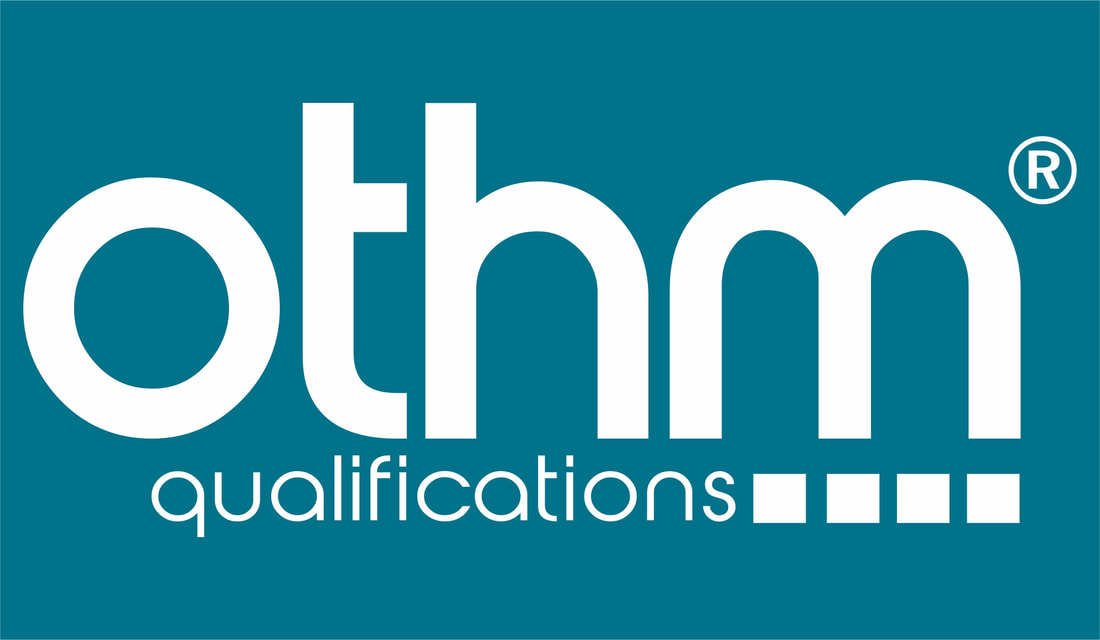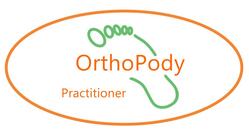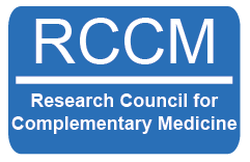FREQUENTLY ASKED QUESTIONS ABOUT LEVEL 5 COURSE
- Confused about which course?
- What do all these different levels mean - level 3, level 5
- Why is it good to belong to a reputable professional organisation like the AoR?
- Why choose Dorothy Kelly Academy of Reflexology?
- What is a Clinical Reflexologist, aren't all Reflexologists the same
- What entry qualifications do I need?
- When do the courses start?
- What days are the training sessions on?
- How long does the course last?
- What happens if I can't get to all the training dates?
- How much time will I need to spend on homework?
- What qualification will I get?
- How many Credits will I be awarded?
- Don't I have to do an introductory course first?
- How much does the course cost?
- Are there any extra costs incurred on top of the basic course fees?
- Can I pay by interest free instalments?
- Can I get a Student Loan for this course?
- How do I book for the Practitioner's Course?
Confused about which course?
There are many courses and organisations, all offering different qualifications and styles of training - this can be very confusing when trying to choose the right Reflexology course for you.
Firstly, ensure that you don't enrol on a distance learning or correspondence course - none of the membership organisations listed on this website will accept these kind of courses.
Secondly, please be aware that there is a huge variety of standards in the level 3 training market (this is why we don't teach it). You can occasionally find a good level 3 school that has an awarding body such as VTCT that is taught over a full year. Most of the level 3 courses now seem to be a combination of distance learning and 5 or 6 days learning practical Reflexology in class. We really don't think you can learn to be a proper Professional Reflexologist after just 5 or 6 days training.
Dorothy Kelly Academy of Reflexology only offers the best in Reflexology training. We are a partnership centre with Centralia/CAREA, so we can offer the CAREA Reflexology qualification (also known as the OTHM Level 5 Diploma in Applied Reflexology for Integrated Medicine). OTHM is an awarding body recognised globally for higher level qualifications.
Find out if the school you are proposing to study with, enables you to join the Complementary and Natural Healthcare Council (CNHC - the UK complementary healthcare regulator), via the professional organisation it is linked to. For example, Dorothy Kelly Academy of Reflexology is linked with the Association of Reflexologists, the UK's largest and longest running Reflexology Association. Also be aware that some of the level 3 'practitioner diplomas' don't meet the CNHC entry criteria.
Then, find out if the course is delivered entirely by the college you are thinking of training with. Some training establishments will 'farm out' part of their training (particularly Anatomy and Physiology) to online training providers - you may then not get the necessary teaching support for this element of the course. The Dorothy Kelly Academy of Reflexology trains all its student for 100% of the course, giving dedicated contact teaching of 163 face-2face hours.
Finally, if the course provider describes their course as "Level 5 equivalent" (or anything else that sounds like "equivalent"), it will be nothing of the sort. A Level 5 course is either just that, or nothing at all. There are no other Reflexology courses that are officially recognised at Level 5, apart from CAREA's in the UK, and there is no Reflexology course that is currently higher than this level. (You can get a degree in Complementary Therapies [Level 6], but the university will use an awarding body for each of the component therapies on the course which in most cases is at Level 3 for each of the complementary therapies). Also, a Reflexologist who has trained at Level 3 and has completed lots of CPD (continuous professional development courses) is still a Level 3 Reflexologist regardless of the additional training, like wise a Level 5 Reflexologist is still a Level 5 Reflexologist regardless of the number of CPD courses attained; they can not become a Level 7 Reflexologist.
What do all these different levels mean - level 3, level 5?
We are very grateful to OTHM for allowing us to use the diagram which shows the differences - follow the link here. This identifies Level 5 as a Foundation Degree. This levelling chart is representative for all qualifications in England, Northern Ireland (QCF) and Wales (CQFW) . (Please not the levelling grades are different in Scotland [a level 8 in Scotland is the same as a level 5 in England, Wales and Northern Ireland whilst in Ireland it equates to Level 6). Also, the Level 5 fully incorporates all the learning requirements of the Core Curriculum in Reflexology (a teaching book collaborated on by: the IIR, BRA, BSRZT, VTCT, SIR, AoR, IFR and CThA). The Level 3 Diploma generally does not include all the recommended elements of the Core Curriculum.
Why is it good to belong to a reputable professional organisation?
- Use of the letters MAR, mFHT (dependant on the organisation)
- All associations have a very useful "Find a Reflexologist" register
- Use of the organisations logo on all your advertising literature
- Peer group support from local area groups
- Latest industry information via newsletters and journals
- Access to research papers
- Access to "Members Area" on their website
- Reflexology advice
- Low cost, high cover, insurance policy from top insurance company
- Fully accredited CPD events and international speakers
Why choose Dorothy Kelly Academy of Reflexology?
Our Training:
At this Academy, unlike many other training establishments, you will train you to become a Integrated Medicine Reflexologist - capable of treating specific conditions. It is the only Level 5 Academy in Northern Ireland/Ireland. In addition, the Academy also operates a flexible training plan, so if you need extra time to study, we will support you. The Academy operates a 'lifetime support' system for all graduates
What is a Integrated Medicine Reflexologist, aren't all Reflexologists the same?
An Integrated Medicine Reflexologist is someone who has been trained to the highest standards and can create a treatment protocol for many different conditions, who looks at the whole person, exploring the relevance of other Health Professionals including medicine as well as all lifestyle factors. Unfortunately, there are too many people who have taken a short course (sometimes as short as just 2 days!) or unregulated course and then call themselves Reflexologists. As these courses are so short, they cannot possibly equip a therapist to competently treat conditions.
What entry qualifications do I need?
To succeed on this course, it is more about determination and hard work (since the course is intensive), rather than previous qualifications. A GCSE in Biology will be helpful, but it is not essential. You certainly don't need to have studied previously at Further or Higher Education level to successfully qualify on this course.
When do the courses start?
Our courses start September each year.
What days are the training sessions on?
Our training days are at the weekend but we also offer a weekday course for those wishing to train within term time.
How long does the course last?
Our courses normally run for 12 months. However, some students prefer to extend their period of study to suit their learning speed and they can extend their course length by a few months at the discretion of the Academy.
What happens if I can't get to all the training dates?
100% attendance is required for the duration of the course. However, we do understand that life is full of unexpected events. The tutors will discuss with each student how they can manage course dates if a problem arises.
How much time will I need to spend on homework?
The answer to this does very much depend on the individual. As a rule of thumb, we suggest 2½ hours of home study for every hour in class. Also, case studies will take 1 hour of practical work per session + about 1.5 hours to write them up. If you are a fast worker, then these times may be on the generous side. Conversely, if you like to take your time, you my want to spend more time on home study.
What qualification will I get?
You will qualify with the UK's highest award in Reflexology: The OTHM Level 5 Diploma in Applied Reflexology for Integrated Medicine. This can be used, not only to become a Professional Reflexologist, but also as 'accredited prior learning' towards a degree in health sciences.
How many Credits will I be awarded?
You will be awarded 120 Credits by OTHM and these can be used for onward progression to University courses.
Credits are more important than most people realise, as they also signify that this is a 'real' qualification and not a course that isn't registered or recognised by any organisations or other teaching establishments. If you are researching which Reflexology school to attend, ensure you ask about credits - if the school can't give you this information, they might not be offering a 'real' qualification.
Don't I have to do an introductory course first?
No - many Further Education colleges will tell you that you need to do an entry-level Reflexology course first (such as a level 3 diploma) - this is completely unnecessary.
How much does the course cost?
Our course costs £3250 and is payable with a deposit of £400 (non-refundable) plus 10 or 12 monthly instalments spread over the course. A payment plan can be agreed by speaking to the principal if you require a slightly longer period of time.
Are there any extra costs incurred on top of the basic course fees?
With the exception of the items listed below, everything you need to pass the course is included in the total cost:
- Registration fees with Centralia and OTHM along with Student Membership which includes free Student Insurance with AoR which must be paid at the first weekend of the course. Irish Students can obtain membership with the Irish Reflexology Institute.
- Lafuma recliner chair or couch (optional, but recommended) for completion of your case studies and upon qualification.
- Uniforms (not needed until after the sixth lesson)
- Any towels, pillows, or other consumables you are wanting to use
Can I pay by interest free instalments?
Yes you can. This is done by Direct Debit and is arranged at the beginning of the course with your Bank.
Can I get a Student Loan for this course?
Unfortunately not. Although the level of training is the correct level for student loans, because we are a private school our courses do not qualify for funding. To help spread the cost of the course, we give interest free repayments for the duration of the course.
How do I enrol for the Practitioner's Course?
Click 'Book Here' and this will take you to the 'Fees for Level 5 course' page and the enrolment form can be found at the bottom of the page.











